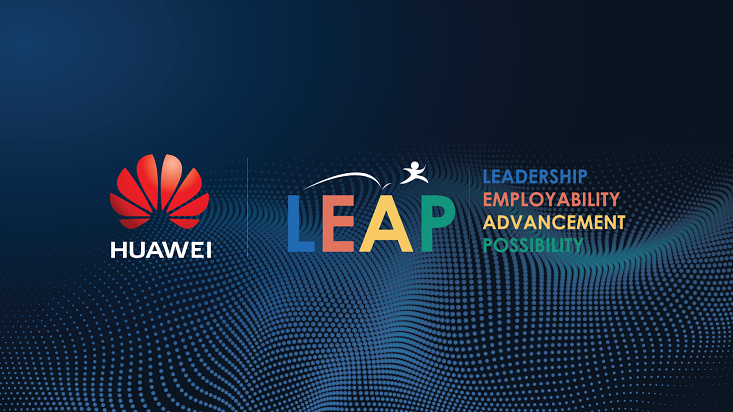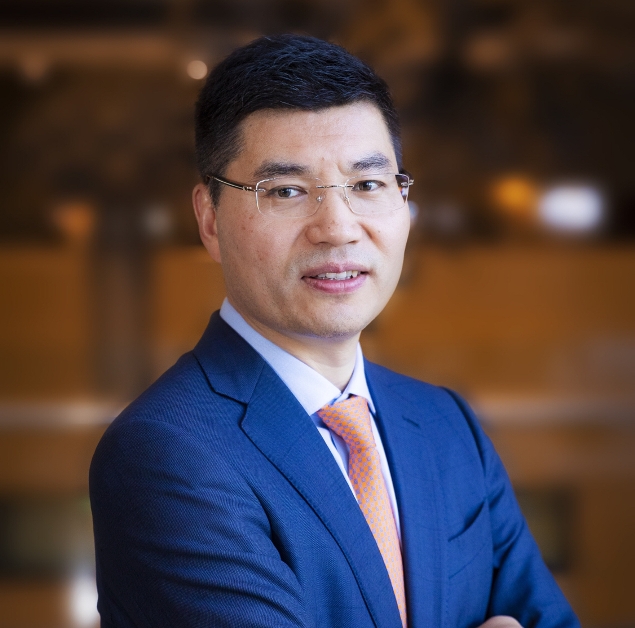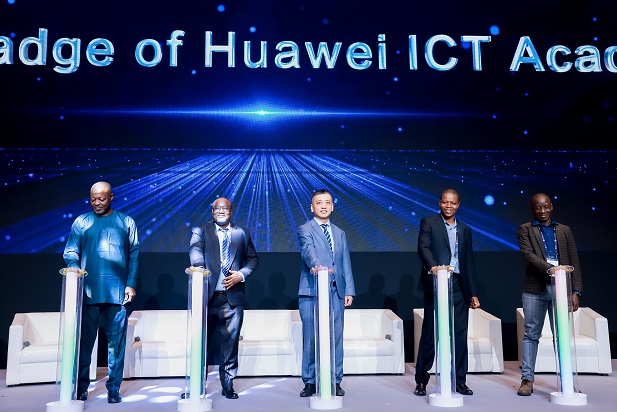Huawei launched its LEAP digital skills development programme on 9th April 2022. Announced at its ICT Competition Awards Ceremony, LEAP aims to help advance the ICT skills of more than 100 000 people across the Sub-Saharan Africa region within three years.
LEAP which is an acronym for Leadership, Employability, Advancement and Possibility, is aimed at fostering strong digital leadership and a skilled ICT workforce, building a digital talent pool, and promoting digital literacy among citizens. It includes a wide range of activities spanning from ICT training and certification courses, government digital capacity building and ICT skills competitions.
Launching the LEAP programme, Huawei Southern Africa President, Leo Chen stressed the importance of ICT skills transfer and talent development and underlined Huawei’s consistent emphasis on it.
“Digitisation is deeply rooted in people. Because we digitise for people and by people. When roots are deep, there is no need to fear the wind,” he said. “Through the programme, we strive to cultivate more youth leaders in ICT, who can explore more possibilities for themselves, their families, community and ultimately their nations.”
Over the past two decades, Huawei has helped advance the ICT skills of more than 80 000 people across the region. In doing so, it has helped increase youth employability and bridge the gender gap in the ICT industry. Huawei itself is an employer of choice in the region. Its subsidiaries in 9 Sub-Saharan African countries earned the Top Employer seal in 2021.
Speaking at the ceremony, Ms. Khumbudzo Ntshavheni, South African Minister of Communications and Digital Technologies, said “It takes you, as the LEAP, Seeds For the Future and Huawei ICT Academy Program participants to leapfrog us into the future. Covid 19 took us into the digital era, but we should not need a pandemic to do this for us in the future, we need to be deliberate and intentional to leapfrog our countries. We need innovation, we need to support local innovators, and we need to promote our own platforms throughout the continent to reach scale and develop our economies. We are only bigger when our market is bigger, and we must walk together.”
Permanent Secretary, Ministry of Education Science and Technology, Tanzania, Prof Eliamani Sadoyeka stressed that the power of ICT should never be underestimated. “ICT has given us almost equal access to knowledge. Once a young mind is connected, a girl from the village in Africa will have the same access to knowledge as a boy in Copenhagen,” he said. He also touched on the fact that Africa’s future is in the hands of its youth population and urged the students to take full advantage of every learning opportunity. He commended Huawei for its ICT Academy which is giving young people the platform and skills in the latest technologies as well as giving them the opportunity to live up to their fullest potential.
Dr. John Chrysestom Muyingo, Ugandan State Minister for Higher Education of Ministry of Education and Sports stated, “We partnered with Huawei on initiatives like the Seeds For the Future, the ICT Competitions through the Huawei ICT Academies established in Uganda and over the years we have always made it a point to play an active role in the implementation of the digital upskilling initiatives in higher education institutions, including universities, across the country. We welcome this partnership, and we are committed to strengthening this relationship.”
Ugandan President Yoweri Museveni tweeted about the event on Sunday, congratulating the Ugandan team from Makerere University and recognising Huawei’s efforts in local digital talent development saying he looked forward “to its expansion to include more of our youth”.
The Covid-19 pandemic has spurred the digital adoption across Africa. This increases the demand for more digital skills and talent. According to a World Bank, study on Digital Skills in Sub-Saharan Africa, over 230 million jobs in sub-Saharan Africa will require digital skills by 2030.
That makes programmes like LEAP even more critical. The Huawei ICT Competition is one of the important components of Huawei’s talent development efforts.
More than 15 000 students from over 200 universities and colleges from Sub-Saharan Africa participated in the 2021-2022 Huawei ICT Competition. From the 48 competing teams, Nigerian and Kenyan teams won first prize in the regional final. Teams from Uganda, Ghana, Nigeria, and Tanzania claimed second prize.
“Huawei’s ICT Competition has provided students like me with a network of industry trainers, instructors, and learning tools, allowing us to obtain a competitive advantage and engage with other students on a global stage,” said Ashtone Onyango, a member of the winning Kenyan team. “This is crucial for students as it not only helps them enhance their abilities but also increases their job market competitiveness.”
The South African team which reached the top ten of the 2021 Huawei Global Tech4Good Competition for designing an intrusion detection system that uses wireless and cloud technologies to curb rhino poaching was honored with a Top Performance Prize.
“My proudest moment was learning that out of the 117 teams from around the world who participated in the Tech4Good challenge, we were part of the top 10 and the only team from the African continent,” said Siyabonga Shandu, who was part of the South Africa intrusion detection system team. “It goes to show we have the capacity and capabilities to create, innovate and build real African solutions to African problems.”
The Huawei ICT competition has grown into the biggest competition of its kind in Africa and across the globe. It offers a global stage for students to showcase and practice their ICT knowledge and skills. Over the past 5 years, 80 000 university students from Africa registered for the competition, and more than 20 teams entered the global finals.
The LEAP programme will be rolled out based on the company’s investment in the region and will see more than 1 200 instructors facilitate 3 000 ICT courses. It will also fund a number of facilities including training centers, hardware installation bases, innovation hubs, mirror labs, and ICT academies. Huawei currently has ICT academies at more than 300 universities and colleges in the region.
At the ceremony, Leo Chen also called for close collaboration between government, industry, and academia to create an ecosystem that everyone can contribute to and benefit from. The Huawei 2021 Excellent Global Talent Ecosystem Partner Award was presented to the South African Public Colleges Organisation (SAPCO). Kenyatta University and Ahmadu Bello University were awarded the
Best Performance Academy of Huawei Sub-Saharan Africa ICT Competition 2021-2022.





